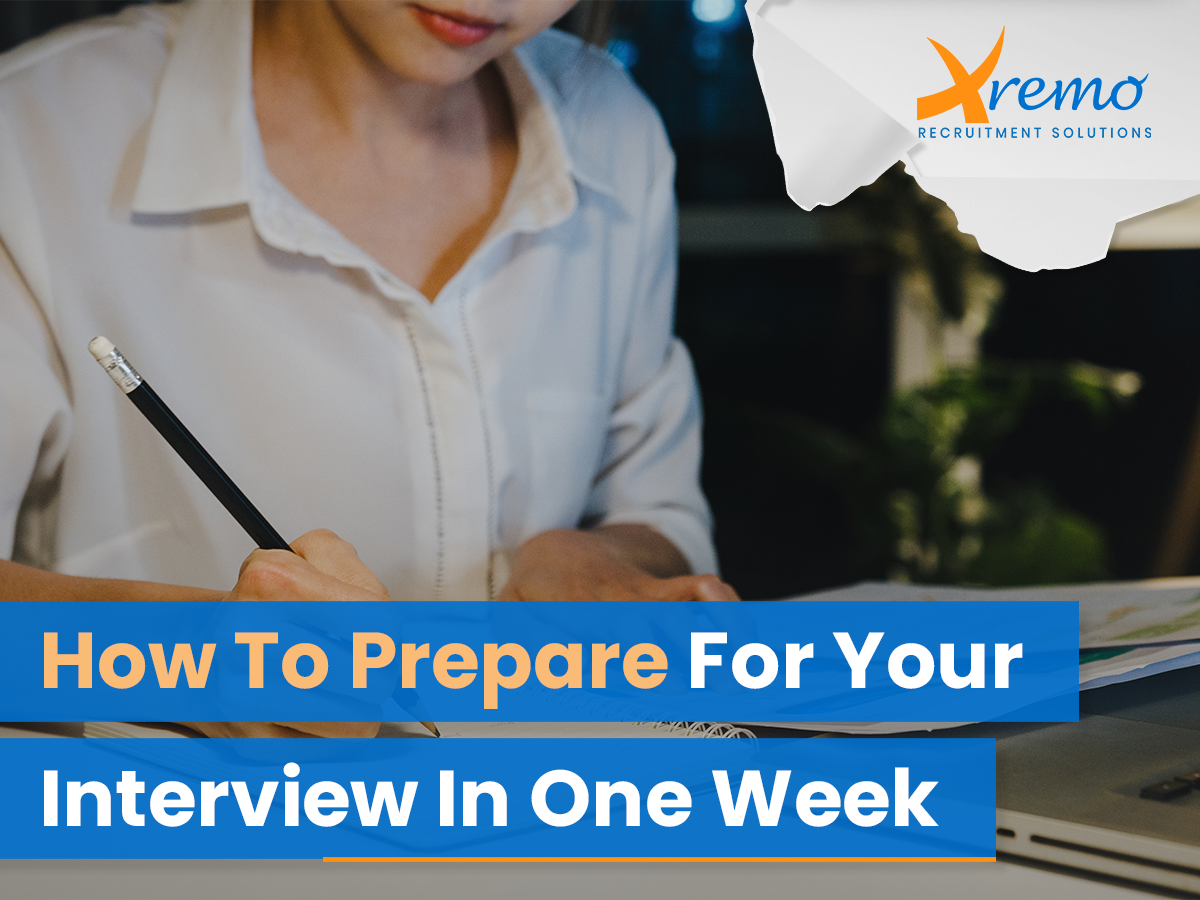If you have an interview scheduled in about a week, you now have a few days to sort yourself out before the big day. That’s ample time for you to prepare and arm yourself with the necessary knowledge. Other than having everything printed and ready, you have to do the usual preparation that we’ve been discussing in this blog. That, as well as being emotionally and mentally prepared. Let’s begin!
1. Research the company and the industry
As every company is different, you have to change yourself into that person they are looking for. This is why company research is vital for success. It’s not perfection that you should be looking for but that of being a good fit for their company. Research is done from different angles. Find out as much information as you can about the background of the company, its products, its work culture, its policies, structure, products and other concerns. The more informed you are about the company’s business model, the better your chances of getting a job there! Research a lot! It’ll help!
2. Outline your strengths and weaknesses
Outline your strengths and weaknesses and make a list of the goals you have set for yourself. This is also where you can mention your aspirations, if any. However, be honest with this because it will be one of the first things they’ll ask you.
3. Anticipate the common interview questions
Under normal circumstances, you wouldn’t know who these people are right away but your recruitment agency can surely help you in this area to plan out your responses to those frequently asked questions like “why do you want to join this company? And why should they hire you?” Write down what answers you feel comfortable with and plan out how they’ll sound when they come out.
4. Prepare to ask any of your questions when you see a relevant opportunity to do so
In this case, your recruitment agency can help prepare and guide you to ask intelligent and targeted questions. Feel free to reach out to Xremo for career guidance too!
5. Practice with a friend
A spoken practice session is important as it gives you confidence when speaking. The interview is spoken so if you’re like most people, and speaking publicly is a challenge for you, then you need some practice. Be confident in what you have prepared for yourself and your answers. Remember, to be convincing is to convince the other person. Not the interviewer but yourself. So if you have prepared something very well, make sure that it is believable and professionally sincere. Being comfortable during an interview and being confident gives you the ability to answer questions without hesitation. So consider this and think about how you’ll feel in that situation and how you’ll answer questions. No one is perfect, but you can come as close as possible to perfection by considering these facts.
6. Put in thoughtful answers
Speaking to a total stranger like the interviewer is no different. There’s bound to be some expectation and tension on yourself because you want to show your best performance. A few practice sessions will take that edge off and you will be more at ease with yourself. You will be able to deliver your lines better and more naturally.

So don’t rush through your responses. Put in more effort into forming a thoughtful answer and you’ll have a better chance of nailing the interview! Time limits can cause anxiety and it can be hard to get your point across if you don’t have the time to elaborate on a topic. First tip is to avoid going off on tangents and focus on one main idea. Secondly, is to keep your responses brief and concise, but still provide enough information for the interviewer. Review our previous post “Common Interview Questions” and practise formulating your own answers. There are a few questions that may be thrown at you and in different forms, but you should be prepared for them. For example: What are your strengths and weaknesses? Be ready with fact-based answers as if you were asked by the interviewer personally instead of them asking the questions via telephone. This will make you stand out as a candidate who can communicate well under pressure.
7. Take a drive
Yes, drive to the place so that you can time yourself as to how long it took you to get there. This way you won’t be late. Also, spend some time there, especially if it’s a commercial area so you can get a feel of what it’s like there. You’ll be less nervous if you see and feel those surroundings for yourself.
8. One final point
Learn about the person who is scheduled to interview you. Do a background check on them. This will help you create a persona for yourself in their eyes, which will make your interview go smoother and it will also help you detach yourself from your true self so that you can answer those tricky questions with confidence!
In closing, here’s another concern. What if you had an emergency in the days leading up to the interview or on that day itself? Sometimes, things happen. In this case, call up your recruitment agency and inform them. Your recruitment agency will inform the employer of your current situation. This way of informing is much better as the agency acts on your behalf as a buffer, and you won’t be questioned directly by the employer. There is also way less room to have a negative impression of you.

If there’s no recruitment agency in the picture and it’s just you and the employer, then here’s where some communication skills are needed. Be truthful and direct. Tell them what emergency it is and why. Emergencies need to be valid and make sense. Then ask them if it’s possible to reschedule the interview possibly within the same week as you cannot allow too much lapse in the time.
So there. You have an interview coming up. If you’ve done all the steps above, you might’ve just landed yourself a job! Call up any of our Recruitment Advisors for a face to face discussion and how we can help you in your job search.


